- Home
- >
- Preservation Archaeology Blog
- >
- Considering Applying for the cyberSW Native Americ...

(April 19, 2023)—And now for something completely different at the Preservation Archaeology blog… I’m here to tell you a bit more about the fellowship opportunity, and to encourage potential applicants to join me for a webinar on April 25. I’ll be joined by colleagues Ashleigh Thompson, Sarah Oas, and Jeff Clark, and we’ll share more about the broader cyberSW project and answer your questions (note that attendees’ names will be hidden from other attendees, so no worries there). Please also feel free to reach out to me at jwatts@archaeologysouthwest.org, and I’ll make every effort to get back to you ASAP.
UPDATE: INFO and Q&A video here
Today I’d like to explain some of our thinking about this job, introduce some very rough ideas about the kinds of projects the Fellow might work on, and provide a peek behind the curtain as to what working with us might actually be like.
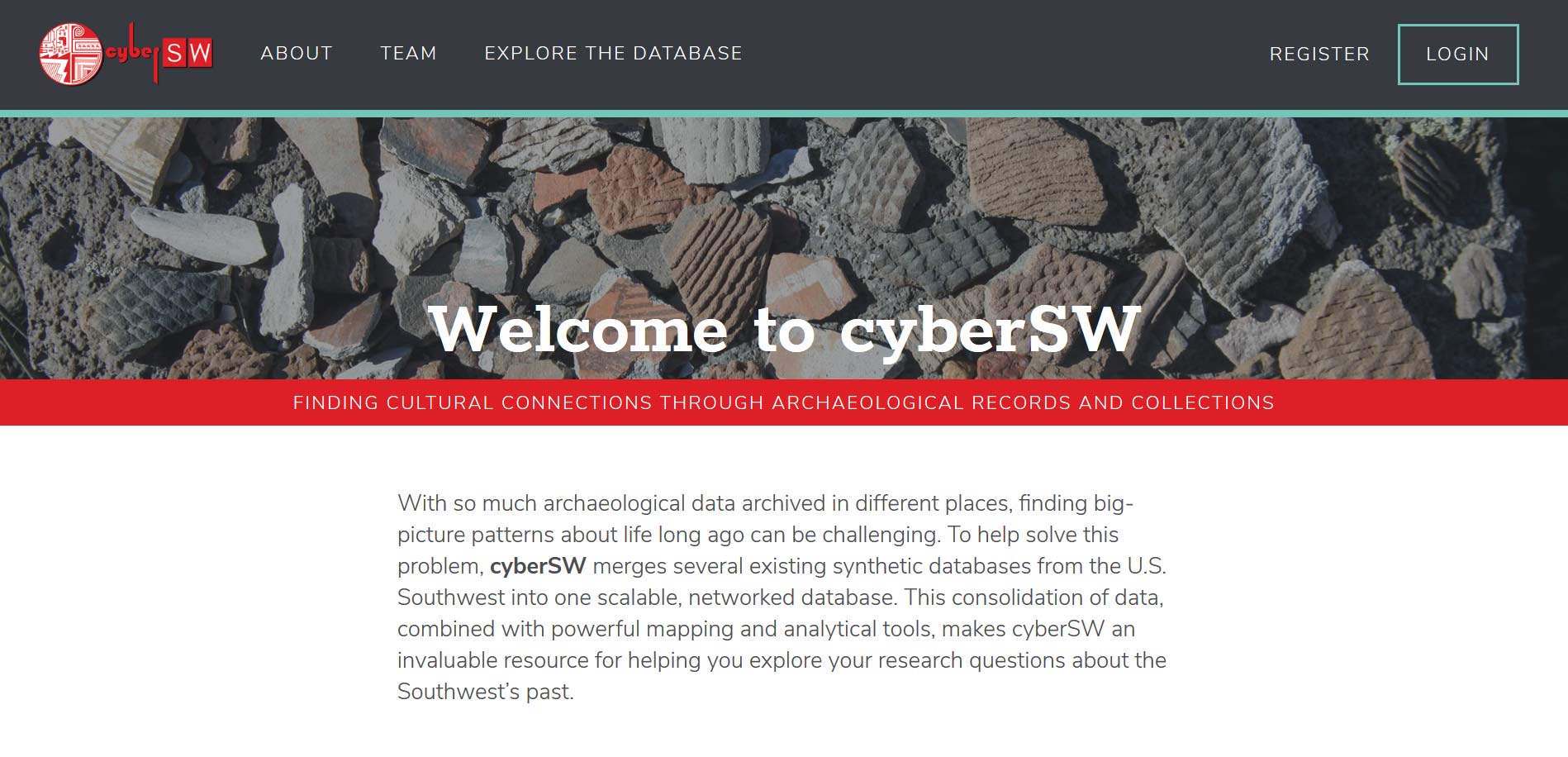
As the job title clearly indicates, we’ll be hiring a Native American for this position. That’s non-negotiable. Enrolled Tribal citizens are strongly encouraged to apply. (As an aside, the Fellow won’t be the only Native American in the office. Let us know if you’d like to be connected to our Native American staff members to get their impressions of working at Archaeology Southwest.)
The Fellow will be working on cyberSW and with the small development team who focus on the cyberSW project. What is cyberSW? cyberSW is a large database of (mostly) pre-contact settlements and related artifacts in the US Southwest, as well as a web-based application for interacting with the database. Essentially, it is a website where interested folks (students, researchers, etc.) can find some specific kinds of archaeological data. We do not provide sensitive information like site locations, and we certainly don’t provide any mortuary data.
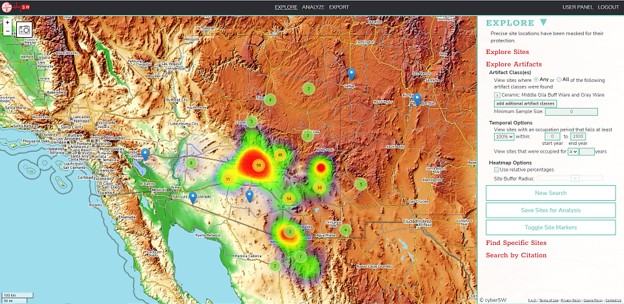
The underlying core database is more than 20 years old, but it has grown dramatically in the last decade. Importantly, most of the information in this database is fairly standard for archaeological datasets: blurred site locations, site sizes, habitation dates, and pottery (as found in excavation reports and museum records). We are currently building out the cyberinfrastructure on our end to also support more detailed datasets and several other artifact classes. Our partners at universities and cultural resource management companies contribute much of the data that goes into the cyberSW database.
The cyberSW project is managed by Archaeology Southwest—I’m currently sitting at my desk in our historic downtown Tucson office complex—in regular consultation with a Tribal Working Group. The Group is a seven-person advisory committee with members from Tribes around the Southwest, and we meet regularly on Zoom. We also work closely with faculty from three universities—the University of Arizona, Arizona State University, and the University of Colorado at Boulder.
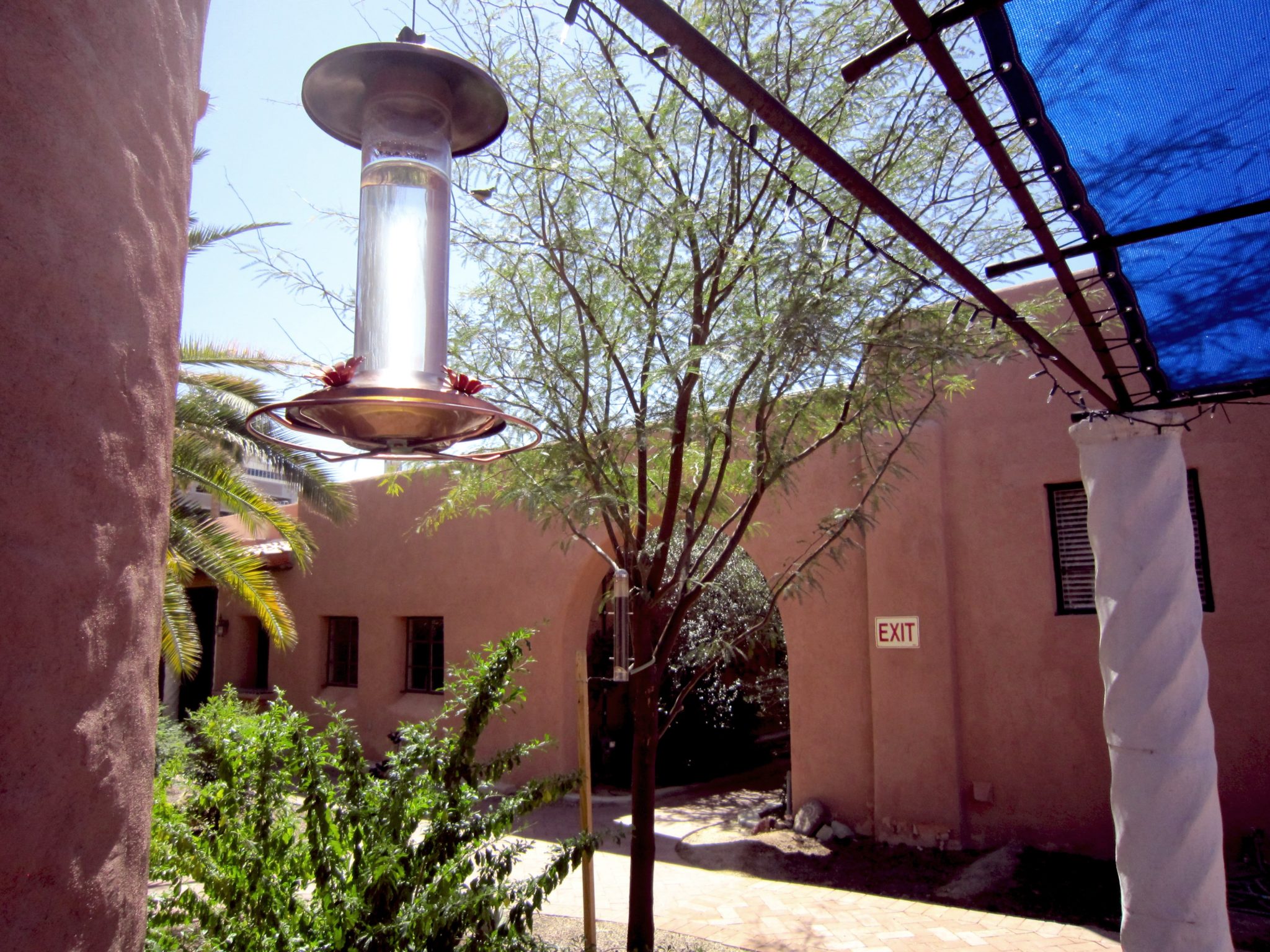
Our core team for the day-to-day work on cyberSW is
» Me, Joshua Watts (Mr. Manager, if you appreciate season one “Arrested Development” references)
» Andre Takagi, who actually does the work of building the website and related tools
» Sarah Oas, who handles new datasets and keeps the rest of us from making too many unforced errors
What we’re looking for is someone to join this core team and coordinate with the Tribal Working Group to help us build cyberSW so that it will be more useful and interesting to Native American communities and individuals around the region. Specifically, we want to hire someone with interests in and experience with topics related to plants and animals, and how those are also Indigenous foods and medicines (with the understanding that some knowledge should not and will not be shared over a public-facing website).
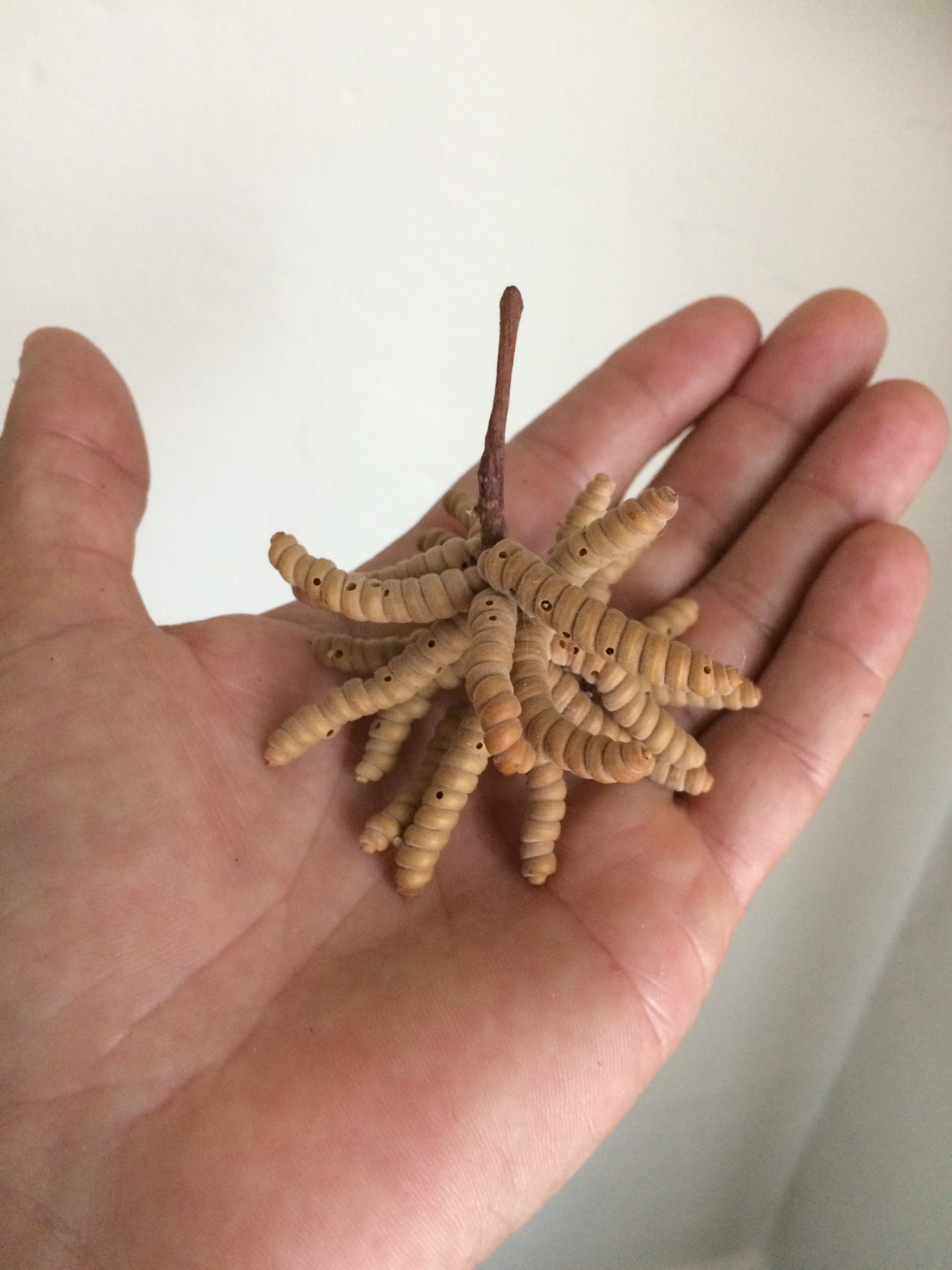
Ideally, the Fellow will have some ideas about how they’d approach extending or fixing cyberSW to help bridge the mostly-very-dry archaeological data (counts of plant and animal remains, and related processing tools) with topics of interest and relevance to them and their home communities—which could be anything from food sovereignty to traditional ecological knowledge. Or something else entirely that we haven’t considered, because we’re archaeologists, and we need help doing a better job of tying these threads together to make cyberSW more relevant to Native people and students, Tribes, and Native scholars.
We’re asking applicants to submit a short proposal outlining the kind of project they could imagine pursuing in this job. In our own brainstorming on the topic, we talked about how applicants might want to work on a local project (for example, a focus on a broad range of plants and animals that are the “ingredients of life” for one Tribe) or one more regional in scope (for example, a focus on a few widely used plants and/or animals across a broad area). It could be highly technical (GIS, remote sensing, or database-oriented), but it certainly does not need to be.
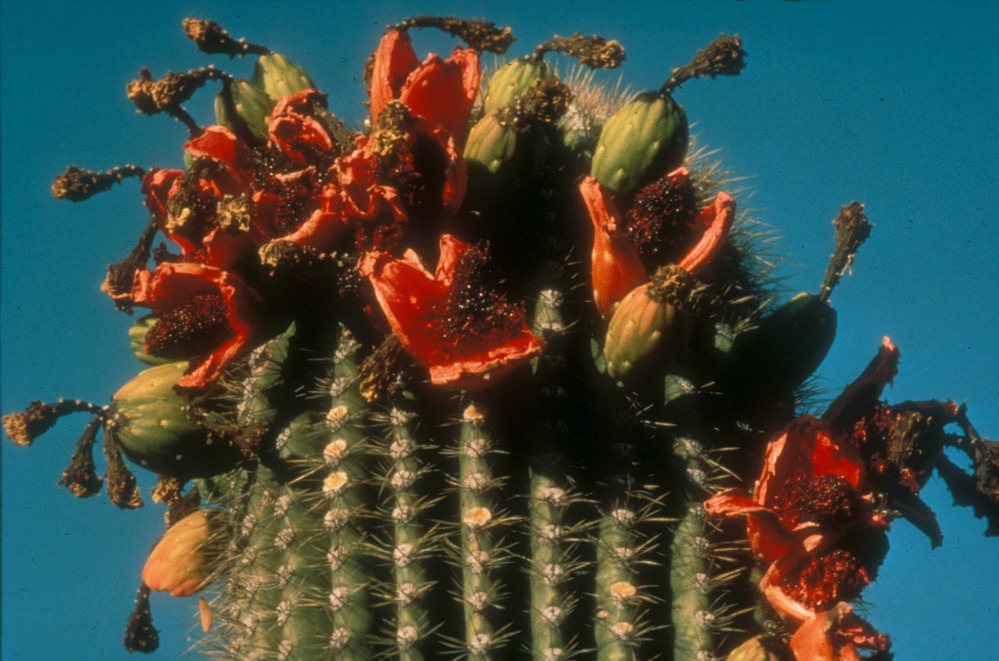
Sorry we haven’t got more concrete guidance on this…but we honestly do want to hear from you what you’d like to take on, what your vision is, rather than impose ideas of our own. If you have a rough idea and want to workshop it a bit, please don’t hesitate to reach out to me, and someone on our team will be happy to reach back and talk it through.
We expect to the Fellow to work in the Tucson office, at least for a substantial portion of their time. But we also understand that maintaining ties to a home community and family is important, particularly for the work we’re asking you to do. So, the specifics of the job location, and the amount of time in Tucson, are going to depend somewhat on the chosen candidate and the kinds of topics they’re interested in.
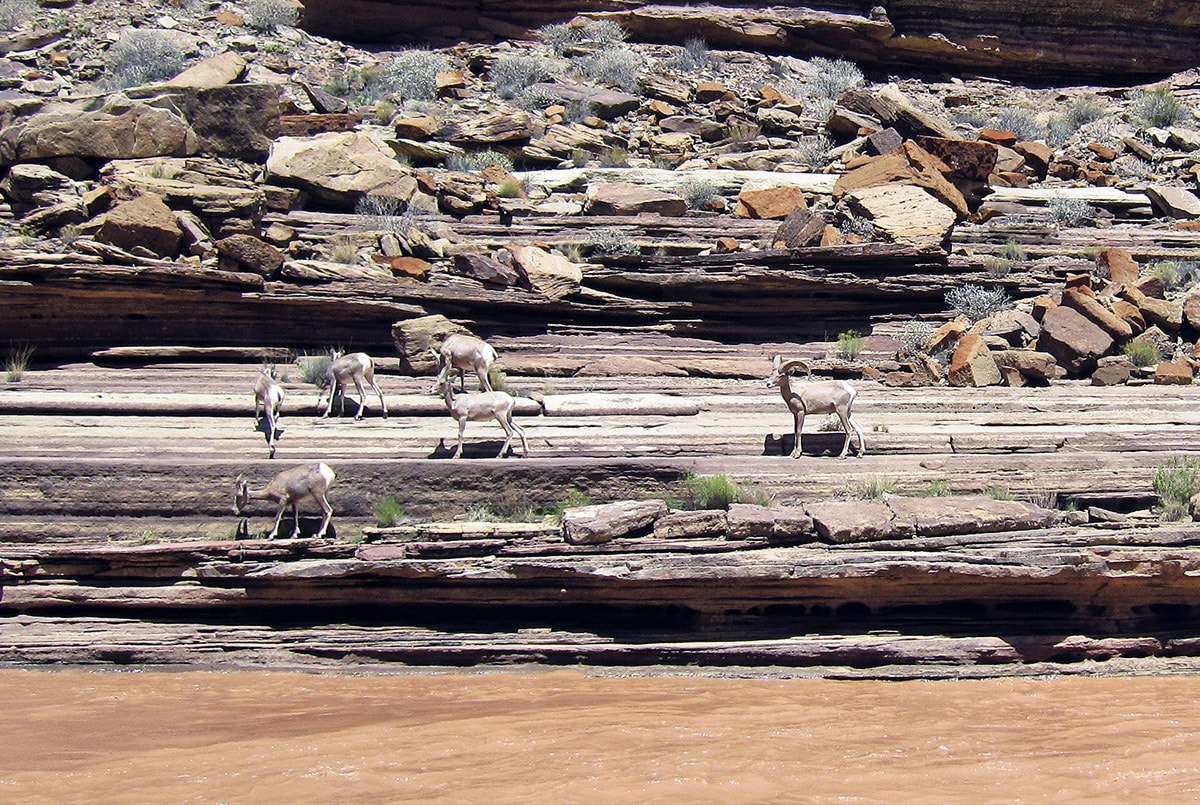
The Fellowship presents us—and we hope you—with so many opportunities. cyberSW is a unique, very large database with the linked web gateway…but it comes from a place of doing archaeological research. We aren’t starting from scratch on this, and whoever we hire will have to interact on some level with what is, at its core, a research database. But—crucially—we now have the capacity and commitment to grow beyond that focus, and the Fellow will play a central role in rethinking and reshaping the future of cyberSW.